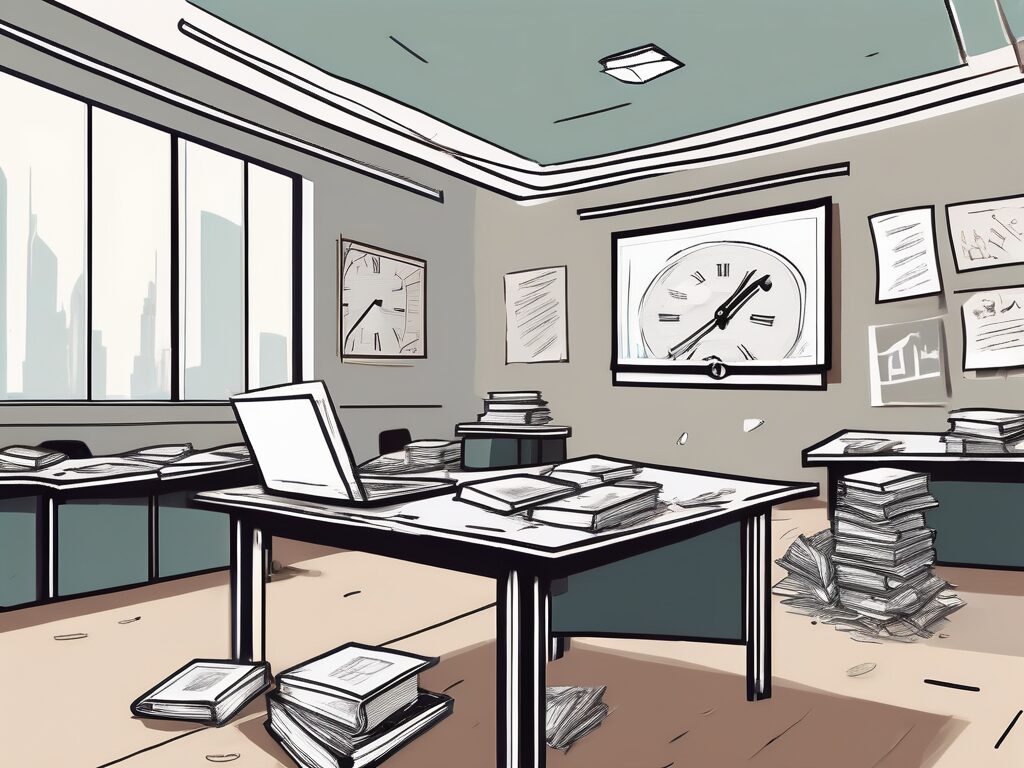Dubai, a city known for its towering skyscrapers and luxurious lifestyle, is also making strides in the field of education. The city’s public schools have been attracting a plethora of highly qualified teachers from around the globe, many of whom hold a Master’s degree in Education. However, despite the allure of working in such a vibrant city, these teachers often face a unique set of challenges. In this blog post, we will delve into five key issues that teachers with a Master’s in Education might encounter in Dubai’s public schools.
1. Cultural Differences
The United Arab Emirates, of which Dubai is a part, boasts a rich and diverse culture that can be quite different from what many foreign teachers are accustomed to. This cultural disparity can sometimes lead to misunderstandings or miscommunications in the classroom.
For instance, the concept of punctuality may vary significantly between cultures. In many Western societies, being on time is considered a virtue, whereas in the UAE, a more relaxed attitude towards time is often observed. This cultural nuance can potentially lead to conflicts or frustration in a school setting.
Moreover, the teaching methods that are effective in one culture may not necessarily translate well in another. Teachers with a Master’s in Education, who are likely to have been trained in Western pedagogical approaches, may find it challenging to adapt their teaching style to suit the local context.
2. Language Barriers
While English is widely spoken in Dubai, Arabic is the official language. In public schools, the medium of instruction is typically Arabic, with English taught as a second language. This can pose a significant challenge for teachers who are not fluent in Arabic.
Even for those who have some proficiency in Arabic, the local dialect can be quite different from the standard Arabic taught in language schools. This can make classroom communication difficult, particularly when explaining complex concepts or giving instructions.
Furthermore, the language barrier can also affect a teacher’s ability to build rapport with students and their parents, which is crucial for creating a supportive and effective learning environment.
3. High Expectations
Teachers with a Master’s in Education are often held to high standards due to their advanced qualifications. This can result in increased pressure to deliver exceptional results, both in terms of student performance and overall school improvement.
These expectations can be particularly challenging in Dubai’s public schools, where many students come from diverse backgrounds and may require additional support to reach their full potential. Teachers may find themselves juggling multiple roles, from educator to counsellor, in order to meet these expectations.
Moreover, the high cost of living in Dubai means that teachers are often expected to work long hours, further adding to the pressure.
4. Curriculum Differences
The curriculum in Dubai’s public schools is based on the UAE’s national curriculum, which can be quite different from the curricula in other countries. This can pose a challenge for teachers who are not familiar with the local curriculum.
For instance, the UAE curriculum places a strong emphasis on Islamic studies and Arabic language, which may not be a major component of the curricula in other countries. Teachers may need to invest significant time and effort in familiarising themselves with these subjects.
Furthermore, the assessment methods used in Dubai’s public schools may also differ from those in other countries. Teachers may need to adapt their teaching strategies to ensure that their students are well-prepared for these assessments.
5. Professional Development Opportunities
Despite the challenges, working in Dubai’s public schools can also present unique opportunities for professional development. The UAE government has been investing heavily in education, with a particular focus on improving the quality of teaching and learning in public schools.
This has led to a range of professional development opportunities for teachers, from workshops and seminars to advanced training programmes. However, these opportunities can be competitive, and teachers may need to actively seek them out in order to benefit.
Moreover, the emphasis on continuous professional development means that teachers are expected to regularly update their skills and knowledge. This can be a challenge for those who are already juggling a heavy workload, but it can also be a rewarding experience that enhances their teaching practice.
In conclusion, while teaching in Dubai’s public schools can be challenging, particularly for those with a Master’s in Education, it can also be a rewarding experience. By understanding and navigating these challenges, teachers can make the most of their time in Dubai and contribute positively to the city’s education sector.
Enhance Your Teaching Career in Dubai with The IQTS at UWE
If you’re facing the challenges of teaching in Dubai’s public schools with a Master’s in Education, consider taking your next step with The International Qualified Teacher Status (iQTS) programme at UWE. This Level 7 qualification is designed to support your professional development, increase your chances of career advancement, and connect you with a global network of educators. With the iQTS, you can overcome the barriers of strict qualification requirements, feel less isolated, and gain a deeper understanding of international curricula. Plus, our flexible online study options ensure you can balance your career growth with your existing commitments. Don’t let the challenges hold you back—Make Your Next Step with the iQTS programme and transform your teaching experience in Dubai.

